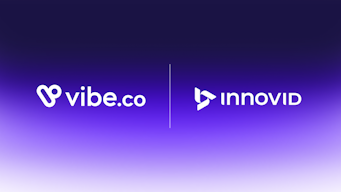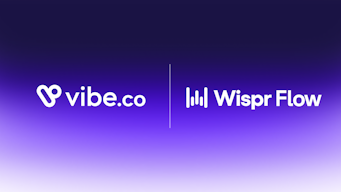What is Media Planning? Definition and Guide
What is Media Planning
In the competitive landscape of today’s digital world, only those businesses that manage to rally a passionate audience truly stand out. And the best way to boost brand awareness and to generate the right kind of engagement is through compelling and unique media content with text, images, podcasts, and videos. Yet regardless of how creative and captivating your content is, planning, producing, organizing, distributing, keeping track of, and analyzing it all can be overwhelming. This is where media planning comes in.
Media Planning: What is it?
A media planning strategy helps you to determine why, when, where, and how your brand should create and share media content. The use of media planning in advertising is practically mandatory as this process is the only way to decide what methods and channels you should favor based on your short- and long-term objectives. Whether you are looking to boost your ROI, engagement, reach, frequency, conversion, or brand awareness, it provides a concrete road map.
Media Planning vs. Media Buying: What’s the difference?
Although they are two sides of the same coin, media planning and media buying are not exactly equivalent.
Media planning oversees the creation, publication, and sharing of your media content. It encompasses any content you wish to incorporate in your overall strategy, be it what you produce in order to keep your social media accounts going, or paid ads and other types of paid content.
Media buying, on the other hand, relates to paid media. It includes negotiating with media vendors, as well as paying to post target ads, or buying ad space for your campaigns.
It is possible to reach your media objectives without any media buying if you limit yourself to what you can create and share with your audience for free. As for media buying, it would not be successful without media planning: it would be like buying ingredients without having a kitchen to turn them into food!
What are the benefits of Media Planning?
Media planning can be instrumental in the success of your marketing strategy as it forces you to give proper consideration to every single step, including:
- Learning about your target audience so you can understand how to reach it more effectively.
- Selecting the right platforms and media channels for your content.
- Establishing a reasonable timetable for content creation and publication.
- Analyzing the latest trends.
- Getting the most out of your budget.
- Interpreting data to measure the efficacy of your media planning process.
Steps to create a media plan for Advertising
A careful media planning strategy involves several key stages.
TARGETING THE RIGHT PERSONAS
There is no such thing as universal advertising. Whether you are managing all your content manually or organizing it thanks to programmatic advertising platforms (or media planning software), you cannot target the right audience if you don’t understand its motivations.
This is where buyer personas come in. These fictional representations of your ideal customers are based on data obtained through thorough market research. A buyer persona is constructed around such major attributes as gender, age, location, income, career, lifestyle, preferred social media platforms, etc. This helps you ensure your target audience is exposed to the right message.
DEFINING SMART GOALS
The acronym SMART describes goals that are Specific, Measurable, Attainable, Relevant, and Time-Bound.
Thanks to this framework, you know exactly where your media planning strategy is going and how it will get there.
USING THE RIGHT MEDIA PLANNING TOOLS
Depending on your objectives and constraints, you can select an appropriate media planning template, media planner, programmatic advertising platforms, Google media planning, or software solution to help you draft, plan, schedule, and analyze your campaigns.
SELECTING YOUR MEDIA MIX
Based on what you have determined thanks to the previous steps, you can then decide whether you should adopt an omni-channel media plan, or focus more specifically on:
- Websites or blogs
- Social media
- Video Marketing
- Email marketing
MAKING YOUR PLAN WORK FOR YOU
Media planning in advertising is all about constructing a road map that aligns with your SMART goals. Once everything matches, it can be tempting to stick with what’s on paper and refrain from making adjustments.
Yet the world of marketing is an ever-evolving one where it always pays to be on your toes. If your media planning strategy leaves room for constant reassessment, then you will be able to recognize any changes in the industry that should prompt you to rethink your approach.
Similarly, analyzing your results will help you understand where you may be able to improve.
Media Planning Strategies
When building a media plan, there are 3 main types of media to consider:
- Owned media, which is content that originated from your brand and that you can use freely.
- Paid media, which is advertising achieved through paid placements (display ads, pay per click, branded content, etc.).
- Earned media, which is content generated by outside, unpaid participants who are happy to offer feedback, media coverage, or to talk about you to others.
Based on what type of content is available, it’s up to the media planning strategist to decide how to integrate these resources all while following the plan for the campaign:
- Selecting the relevant media channels
- Setting a relevant timeline
- Monitoring and coordinating the channel mix
- Leveraging audience targeting
- Setting frequency and reach goals
- Choosing a tone of voice to send the right message to your target audience
How to select media channels?
In addition to the type of media, a sound media planning strategy involves selecting the right channel(s):
- Offline media, including magazines, newspapers, TV, the radio, and out of home channels. These channels allow you to be as broad or as specific as you wish in terms targeting, but often require a more significant budget.
- Online media, including PPC, digital publications, social media, programmatic advertising (programmatic bidding or real-time bidding). These digital media are convenient and cost-effective, all while putting more data at your disposal to help you fine-tune your strategy. However, because it is more approachable, competition can be fierce.
Tips for Your Media Planning Strategy
- Choose the most relevant media channel(s) for your project and brand.
- Determine your SMART goals
- Follow a well thought out publishing calendar
- Use programmatic advertising platforms
- Select and coordinate your channel mix
- Target your audience
- Choose the right voice to address your audience


